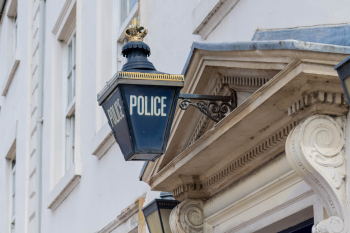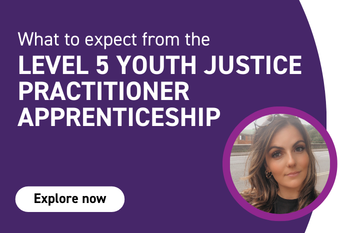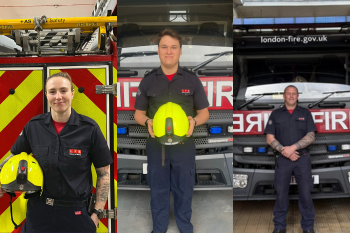Restorative practice has been an important model of work in communities in Northern Ireland during a period of transition in a post-conflict society. That work has been enhancing the process of repairing the harm experienced during the decades of conflict. The application of restorative practice has been central to restoring relationships within communities, between communities and with key statutory agencies, including the police service, probation service, youth justice services, social services, housing providers and the court processes.
The background
Time-Out Assessment Centre has worked with sector skills bodies and the Department of Justice in Northern Ireland to protect and promote the assessment of competence with practitioners in working with victims, survivors and witnesses and in restorative practice. Through this experience, Time-Out Assessment Centre has developed a model for support, assessment and quality assurance that has been tried and tested to promote:
- Qualifications that are accessible in the work place and relevant to work-roles
- Support that is flexible to meet the needs of the service provision
- Workforce development that is effective, efficient and sector specific
- Development of management infrastructure to build capacity in organisations
This model has been particularly important in the context of Northern Ireland emerging from conflict and division.
The Justice and Security (Northern Ireland) Act 2007 provides that the Minster of Justice will maintain a public register of accredited community-based restorative justice schemes. This legislation included a requirement that all practitioners should receive accredited training for practice. The former SFJ Awards Level 4 Diploma in Restorative Practice was accepted by the Department of Justice as an accredited training programme and from 2013 community-based practitioners in Northern Ireland achieved this qualification.
The challenge
Following a review by SSC Skills for Justice, the revised Level 4 Diploma in Restorative Practice was found to be inaccessible to community-based practitioners in Northern Ireland. As the loss of a valid qualification would create a major dilemma in planning to meet the demands of the community to address paramilitarism through competent practice that is monitored and accountable, Time-Out Assessment Centre met with SFJ Awards to consider the specific needs of community-based restorative practitioners in Northern Ireland:
– Access to a valid qualification assessing their understanding of restorative principles and monitoring their implementation of the restorative process
– Recognition of the complexity and time-commitment for effective restorative practice in the level of the qualification
– Links with the legislation and accountability structures for community-based restorative practice
– Recognition that community-based restorative practice must meet the standards of professionalism and accountability required of all restorative practice
How we did it
As an Awarding Organisation that works closely with the Community Justice sector and understands its challenges, SFJ Awards was able to work with Time-Out Assessment Centre to come to a solution. Time-Out Assessment Centre, Community Restorative Justice Ireland and NI Alternatives commissioned and funded SFJ Awards to develop the new Level 4 Diploma in Restorative Practice and Processes, to meet the specific requirements of community-based restorative practitioners. Time-Out Assessment Centre co-ordinated the review of the structure and content of the qualification with partners Community Restorative Justice Ireland and NI Alternatives; SFJ Awards managed the technical development, wider consultation with key stakeholders in Northern Ireland and the regulation of the qualification.
Our approach
The new SFJ Awards Level 4 Diploma in Restorative Practice and Processes, which is only available in Northern Ireland, has:
– Been approved as a regulated qualification with CCEA
– Received the Accredited Qualification Mark from the Restorative Justice Council
– Been approved by the Department of Justice (NI) as an appropriate qualification meeting the standards required under the Protocol governing arrangements for accreditation of Community-based Restorative Justice schemes
As an additional outcome of the development, the knowledge unit in the Diploma has been regulated for use in Northern Ireland, England and Wales as a separate award for learners from 16 years. A group of learners has already successfully completed the SFJ Awards Level 3 Award in Understanding the Principles of Restorative Practice. Another cohort of learners has been registered for the SFJ Awards Level 4 Diploma in Restorative Practice and Processes.
Both qualifications will be subject to ongoing monitoring and review by SFJ Awards and Time-Out Assessment Centre to ensure that they continue to meet the needs of community-based restorative practitioners.
In Northern Ireland, the process of peace and reconciliation is a slow and unpredictable journey. Relationships within and between communities remain fragile. Restorative practice offers options, solutions and dialogue – competent practitioners build trust, confidence and hope.
As ‘The Fresh Start Panel Report on the Disbandment of Paramilitary Groups in Northern Ireland’ commented in May 2016 “Restorative justice initiatives are an important part of both building confidence in the justice system and delivering better outcomes for communities, including lower levels of recidivism… This work should, in our view, be continued and, where possible, enhanced and the scope broadened. We consider some of these organisations to be delivering significant outcomes and note that some are highly regarded beyond Northern Ireland as carrying out exemplary work in the restorative justice field.”
Download a PDF version of the case study
For more information about the qualifications, please contact:
SFJ Awards on 0114 284 1970 or [email protected] or Time-Out Assessment Centre.





